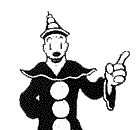Characterem reprobationis in vultu gerensSpinoza on the supposed argument from Design:
"""'Herefrom it follows, first, that men think themselves free [free will] inasmuch as they are conscious of their volitions and desires, and never even dream, in their ignorance, of the causes which have disposed them so to wish and desire. Secondly, that men do all things for an end, namely, for that which is useful to them, and which they seek. Thus it comes to pass that they only look for a knowledge of the final causes of events, and when these are learned, they are content, as having no cause for further doubt. If they cannot learn such causes from external sources, they are compelled to turn to considering themselves, and reflecting what end would have induced them personally to bring about the given event, and thus they necessarily judge other natures by their own.
Further, as they find in themselves and outside themselves many means which assist them not a little in their search for what is useful, for instance, eyes for seeing, teeth for chewing, herbs and animals for yielding food, the sun for giving light, the sea for breeding fish, etc., they come to look on the whole of nature as a means for obtaining such conveniences. Now as they are aware, that they found these conveniences and did not make them, they think they have cause for believing, that some other being has made them for their use. As they look upon things as means, they cannot believe them to be self-created; but, judging from the means which they are accustomed to prepare for themselves, they are bound to believe in some ruler or rulers of the universe endowed with human freedom, who have arranged and adapted everything for human use."""
Hegel dishes on Spinoza: """After having made a narrow escape from the dagger, [Spinoza] formally withdrew from the Jewish communion, without, however, going over to the Christian Church. He now applied himself particularly to the Latin language, and made a special study of the Cartesian philosophy. Later on he went to Rhynsburg, near Leyden, and from the year 1664 he lived in retirement, first at Voorburg, a village near the Hague, and then at the Hague itself, highly respected by numerous friends: he gained a livelihood for himself by grinding optical glasses. It was no arbitrary choice that led him to occupy himself with light, for it represents in the material sphere the absolute identity which forms the foundation of the Oriental view of things. Although he had rich friends and mighty protectors, among whom even generals were numbered, he lived in humble poverty, declining the handsome gifts offered to him time after time. Nor would he permit Simon von Vries to make him his heir; he only accepted from him an annual pension of three hundred florins; in the same way he gave up to his sisters his share of their father's estate. From the Elector Palatine, Carl Ludwig, a man of most noble character and raised above the prejudices of his time, he received the offer of a professor's chair at Heidelberg, with the assurance that he would have liberty to teach and to write, because "the Prince believed he would not put that liberty to a bad use by interfering with the religion publicly established." Spinoza (in his published letters) very wisely declined this offer, however, because "he did not know within what limits that philosophic liberty would have to be confined, in order that he might not appear to be interfering with the publicly established religion." He remained in Holland, a country highly interesting in the history of general culture, as it was the first in Europe to show the, example of universal toleration, and afforded to many a place of refuge where they might enjoy liberty of thought; for fierce as was the rage of the theologians there against Bekker, for example (Bruck. Hist. crit. phil. T. IV. P. 2, pp. 719, 720), and furious as were the attacks of Voetius on the Cartesian philosophy, these had not the consequences which they would have had in another land. Spinoza died on the 21st of February, 1677, in the forty-fourth year of his age. The cause of his death was consumption, from which he had long been a sufferer; this was in harmony with his system of philosophy, according to which all particularity and individuality pass away in the one substance. A Protestant divine, Colerus by name, who published a biography of Spinoza, inveighs strongly against him, it is true, but gives nevertheless a most minute and kindly description of his circumstances and surroundings - telling how he left only about two hundred thalers, what debts he had, and so on. A bill included in the inventory, in which the barber requests payment due him by M. Spinoza of blessed memory, scandalizes the parson very much, and regarding it he makes the observation: "Had the barber but known what sort of a creature Spinoza was, he certainly would not have spoken of his blessed memory." The German translator of this biography writes under the portrait of Spinoza: characterem reprobationis in vultu gerens, applying this description to a countenance which doubtless expresses the melancholy of a profound thinker, but is otherwise wild and benevolent. The reprobatio is certainly correct; but it is not a reprobation in the passive sense; it is an active disapprobation on Spinoza's part of the opinions, errors and thoughtless passions of mankind."""
Spinoza takes necessity seriously (paraphrasing Russell). Spinoza's determinism may be unsettling to the average 'Merican consumer (judeo-christian or not), but he does offer a rather simple and elegant solution to the supposed mind-body problem, and to dualisms of whatever sort
Sunday muzak:
ChetBaker/AutumnLeaves













